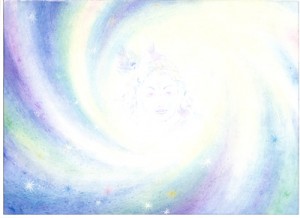
The course of evolution proceeding from the vegetable to the animal, from the animal to the man, starts in the latter from the subhuman; he has to take up into him the animal and even the mineral and vegetable: they constitute his physical nature, they dominate his vitality, they have their hold upon his mentality. His proneness to many kinds of inertia, his readiness to vegetate, his attachment to the soil and clinging to his roots, to safe anchorages of all kinds, and on the other hand his nomadic and predatory impulses, his blind servility to custom and the rule of the pack, his mob-movements and openness to subconscious suggestions from the group-soul, his subjection to the yoke of rage and fear, his need of punishment and reliance on punishment, his inability to think and act for himself, his incapacity for true freedom, his distrust of novelty, his slowness to seize intelligently and assimilate, his downward propensity and earthward gaze, his vital and physical subjection to his heredity, all these and more are his heritage from the subhuman origins of his life and body and physical mind. It is because of this heritage that he finds self-exceeding the most difficult of lessons and the most painful of endeavours. Yet it is by exceeding of the lower self that Nature accomplishes the great strides of her evolutionary process. To learn by what he has been, but also to know and increase to what he can be, is the task that is set for the mental being.
Sri Aurobindo





